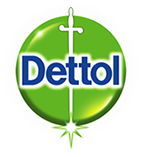When travelling to new or different countries, you may need to take precautions to avoid infections so you don’t become ill once you have arrived. You should check which vaccinations are recommended for the areas you will be visiting well in advance of travelling.

Vaccinations
You don’t always need vaccinations to travel to new countries, but if you do, the recommended vaccinations will vary, depending on:
- which country you’re visiting and, in some cases, which part of the country
- the season or time of year when you’ll be travelling, for example, the rainy season
- whether you’ll be staying in a rural area or an urban or developed area
- what you’ll be doing during your stay, such as working in or visiting rural areas
- how long you’ll be staying
- your age and health.
See your doctor for advice about travel vaccinations (and protecting yourself from malaria if necessary), ideally at least eight weeks before going abroad. If you do need new vaccinations, some need to be given well in advance so that they can work properly and they may require more than one dose to be effective. You also need to make sure any existing vaccinations are up to date (for example, polio and tetanus). If they’re not, you can arrange booster vaccinations.
General Advice
Germs that cause tummy upsets and diarrhoea are spread by consuming contaminated food or water, or by touching contaminated surfaces and then transferring the germs to your mouth. Taking extra care to ensure food and water are safe, and cleaning your hands frequently can help to protect you from tummy upsets and other infections when you are away from home. If you are pregnant, have a health condition, or are travelling to a location with harsh conditions, consult your doctor before you go, and refill any prescriptions that you will need while away.
Key points to remember to stay healthy while you travel:
- Wash your hands (and dry them on a clean, dry towel or preferably a paper towel) after using the toilet and before eating food – it is one of the most effective ways to help prevent disease spreading. If there are no washing facilities, the next best defence against germs is to use a hand sanitiser.
- Pack a first aid kit containing an antiseptic and some plasters, to help protect minor wounds from infections.
- Carry an alcohol-based hand sanitiser or antibacterial wipes in your hand luggage, so that you can keep clean while you travel.
- Use tissues – if you have a cold or cough, sneeze or cough into a tissue and then throw it in a bin before cleaning your hands.
- Check public health and travel advice before you go – do some research about the destination and find out whether you should avoid the water, or certain food and drink. Find out whether there are particular areas to avoid eating and drinking in and take water purification tablets with you in case bottled water isn’t available.
- Stay hydrated – ensure you drink lots of water (sealed, bottled, boiled or purified if necessary).
- Consider taking certain over-the-counter medicines with you such as those for constipation or stomach upsets.
- Avoid contact with local wildlife and stray animals such as dogs and cats as they can carry disease.
- If travelling to an environment with more extreme weather conditions, remember to take appropriate clothing (e.g. hats and long sleeves to prevent sunstroke and sunburn). Include sunscreen where appropriate.
- Don’t swim in polluted water or swallow pool water.
Food and Drink
Food
Safe to Eat
- Eat foods that are well-cooked and served steaming hot. Avoid raw or slightly cooked food, seafood, mayonnaise, ice cream, butter, etc.
- Eat breads, tortillas, crackers, biscuits, and other baked goods.
- Eat fruits, nut, and vegetables with thick skins, peels, or shells that you remove yourself. Do not use tap water to wash your food; instead use bottled water that has been sealed, boiled water, or water that you have purified yourself.
- Eat canned foods.
Avoid
- Any food from street vendors or market stalls.
- Leafy or uncooked vegetables and salads.
- Undercooked, raw, or cold meat, seafood, or fish.
- Unpasteurized dairy products such as cheese, yogurt, ice cream, or milk.
- Cold sauces such as mayonnaise, salad dressing, chutneys, or salsas, which are usually raw and may be made by hand (or could have been left out for a long time).
- Buffet foods, unless you know they are fresh and have been kept steaming hot. Avoid buffets where there are no food covers or fly controls.
Drinks
Unless you know the water is safe, avoid drinking tap water, even if it is in a luxury hotel. Instead purchase bottled water, or boil or purify water before using. When buying water, make sure the seal is not broken and if you’re in a restaurant, ask them to open the bottle at your table so you can see that the seal is not broken. Some places reuse opened bottles and fill with them water from local sources. Remember that water comes in different forms:
- order your drinks without ice, if it may be made from the local tap water
- brush your teeth with bottled or boiled water or water you have treated yourself. Even a small sip of contaminated water can cause diarrhoea
- use bottled, boiled or purified water when taking medicines. Diarrhoea is not only uncomfortable, but it could also affect the impact of any medications you might be taking.
For Other Drinks
- consume only industrially bottled beverages, as open or unsealed bottles could be filled from a contaminated source
- avoid raw milk, though pasteurized milk is safe to drink
- fruit juices with high sugar content are an ideal medium for bacteria to grow. Only drink fruit juices if you know that the fruit, blender, and anyone’s hands in contact were hygienically cleaned
- fresh hot coffee and tea are safe beverages. Beer and wine are also typically safe. Note: Alcoholic beverages do not disinfect bacteria already in the stomach.
